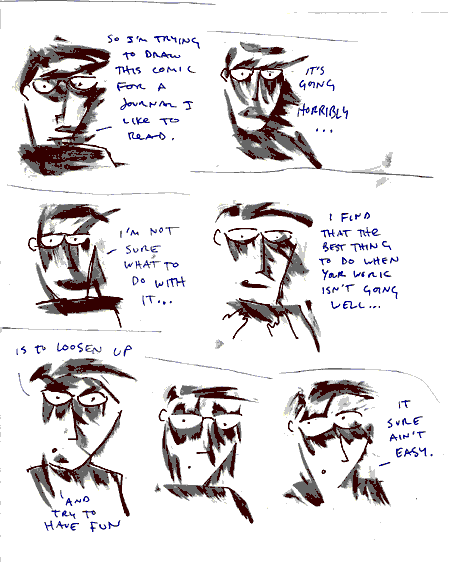
- Best job in the world: writing about Ghostface Killah for lame-o New Yorker readers. I’ve heard the album, and it is great. (A fun note: Ghostface comes right after George Saunders on my Ipod artists menu.)
- If your eyeball pops out of socket…panic. (I would.)
- Anders Nilsen’s illustrations for Hans Christian Anderson’s Fairy Tales.
- Chapter One of Naomi Klein’s NO LOGO, which I read ages ago, but still think is brilliant. Search the whole book on Google Books.

